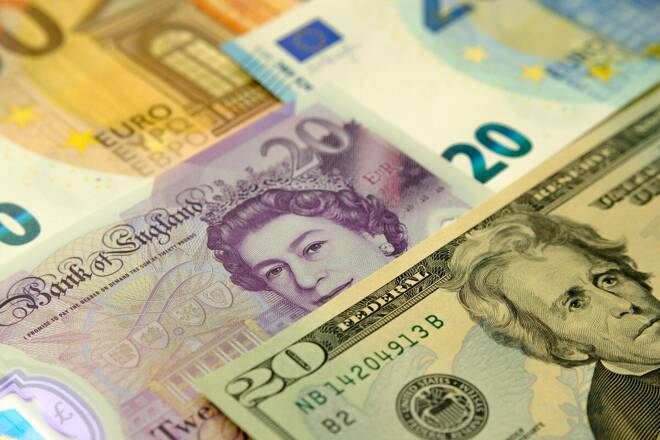Advertisement
Advertisement
GBP to USD Forecasts: Bulls Eye $1.2950 on BoE Policy Bets
By:
It is a big week ahead for the GBP to USD. This morning, housing sector data and consumer credit figures will draw interest ahead of the US session.
Highlights
- It is a big week ahead for the GBP to USD, with the Bank of England in action on Thursday.
- However, China stimulus hopes delivered early morning support ahead of housing sector numbers later this morning.
- Longer-term indicators are bullish, with the bulls eying a return to $1.2950.
On Friday, the GBP to USD was in recovery mode, gaining 0.40% to end the day at $1.28469. Softer-than-expected US Core PCE Price Index numbers provided much-needed support.
It is a quiet start to the week on the UK economic calendar, with UK housing sector numbers for June in focus. Mortgage approvals and lending figures should have a limited impact on the GBP to USD. However, the Bank of England’s Consumer Credit report should draw interest. Economists forecast an increase from £1.144 billion to £1.300 billion in June.
No Monetary Policy Committee members are on the calendar to speak today, leaving comments to the media to influence ahead of the Thursday interest rate decision.
However, NBS private sector PMI numbers from China set the tone. Hopes of stimulus from Beijing offset the impact of bearish numbers. The NBS Manufacturing PMI rose from 49.0 to 49.3, while the Non-Manufacturing PMI fell from 53.2 to 51.5.
The US Session
It is a quieter US session, with Chicago PMI numbers for July in focus. However, barring a fall to sub-40, investors will likely brush aside the July numbers, with the ISM Manufacturing PMI out on Tuesday.
After softer Core PCE Price Index figures, investors will look for reasons for the Fed to push interest rates higher in September. Employment and prices sub-components of the PMI surveys will influence investor sentiment.
GBP to USD Price Action
Daily Chart
The Daily Chart showed the GBP to USD sat at the upper level of the $1.2862 – $1.2785 support band after the Friday gains. Looking at the EMAs, the GBP to USD remained above the 50-day ($1.27440) and 200-day ($1.24313) EMAs, signaling bullish momentum over the near and longer term.
Notably, the 50-day EMA continued to pull away from the 200-day EMA, affirming the near-term bullish trend.
Looking at the 14-Daily RSI, the 51.00 reading sends moderately bullish price signals, indicating a move through the upper level of the $1.2862 – $1.2785 support band to target $1.2950. However, a fall through the support band and the 50-day EMA ($1.27440) would bring sub-$1.27 into view.
4-Hourly Chart
Looking at the 4-Hourly Chart, the GBP to USD hovers at the upper level of the $1.2862 – $1.2785 support band. However, the GBP to USD sits below the 50-day EMA ($1.28847) while holding above the 200-day EMA ($1.28067), sending bearish near-term but bullish longer-term price signals.
Significantly, the 50-day EMA narrowed on the 200-day EMA, supporting a run at $1.27. However, a GBP to USD move through the upper level of the $1.2862 – $1.2785 support band and 50-day EMA ($1.28847) would bring $1.2950 into play.
The 14-4H RSI reading of 47.01 sent bearish signals, with selling pressure outweighing buying pressure. Significantly, the RSI signals a GBP to USD fall through the 200-day EMA ($1.28067) to bring $1.27 into view.
About the Author
Bob Masonauthor
With over 28 years of experience in the financial industry, Bob has worked with various global rating agencies and multinational banks. Currently he is covering currencies, commodities, alternative asset classes and global equities, focusing mostly on European and Asian markets.
Advertisement
